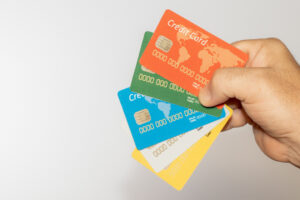Wrap Up the Year with Smart Money Moves
End 2025 with smart money moves — plan, save, and take control of your financial future. Check out more now.
Money Moves to Close the Year Strong
The end of the year is always an invitation to reflect—on what has passed, what’s ahead, and, of course, how your finances are doing.

Below is a guide with practical, smart actions to close the year with stability and confidence.
Review What Truly Mattered in 2025
Before opening any spreadsheet or financial app, take an honest look back. Where did your money truly make a difference? What experiences or decisions brought real value?
Understanding what added meaning helps you see what can be cut without guilt. Forgotten subscriptions, bank fees, and impulse purchases often drain your budget quietly.
Ending the year with clarity about what brought real returns—emotional or financial—is the first step toward a more intentional 2026.
Organize Your Seasonal Expenses
The final quarter of the year brings higher expenses: gifts, flights, hotels, parties, and the inevitable rise in energy and transportation costs. Even the most organized person can be caught off guard.
A simple trick is to set aside, in October or November, a specific fund for seasonal spending.
It can be a sub-account at a digital bank, a physical envelope, or a budgeting app wallet. What matters is that this money stays separate from your regular budget.
Take Advantage of Last-Minute Tax Benefits
For those living in the U.S., year-end is the home stretch for tax optimization. There’s still time to contribute to retirement accounts like 401(k) or IRA, make deductible donations, and review medical expenses that can reduce your taxable income.
Renegotiate and Review Contracts
Another essential step is reviewing contracts that renew automatically—car insurance, health plans, internet, and cell phone service.
The U.S. market changes fast, and companies often offer promotional rates for new customers—which, with a quick call or chat, can also be extended to existing ones.
Reward Yourself with Purpose
Year-end is also a time to celebrate accomplishments. But celebrating doesn’t mean spending without thought.
Allowing yourself a meaningful experience—a special dinner, a short trip, or a symbolic gift—can have a powerful psychological impact.
Do a Digital Financial Check-Up
With the rise in online fraud and heavy use of virtual cards, it’s worth doing a digital cleanup.
Review accounts linked to apps, streaming platforms, and digital wallets. Change old passwords and check for active subscriptions that no longer make sense.
Services like Credit Karma and Mint help monitor credit and transactions in real time.
Update Your Goals and Set New Ones
The beginning of the year is when most people make plans—but the end of the year is when you should define them based on real data.
If you tracked your finances throughout 2025, you already know what worked and what needs to change.
Maybe your 2026 goal is to invest more, pay off a debt, save for an exchange program, or start an emergency fund.
Whatever it is, write it down and create a simple monthly plan: how much to save, where to invest, and what to cut.
Goals work best when they are measurable and realistic. Instead of saying “I want to save more,” say “I’ll save 10% of my income every month starting in January.”
Use Card Rewards and Points
Many Americans accumulate points and miles all year long—but let part of them expire. Year-end is the perfect moment to use these rewards, whether on trips, hotel stays, or even credit statement credits.
Besides easing holiday expenses, using your points strategically prevents waste and gives a sense of payoff from your yearly spending.
Plan Ahead for January
January can be tricky: December bills arrive, property taxes are due, and New Year enthusiasm can trigger extra spending. The best defense is planning.
Create now a budget for the first quarter of 2026—include potential trips, home maintenance, and insurance renewals.
End with Gratitude and Awareness
Closing the year with smart financial decisions is more than saving money—on—it’s about taking control.
It’s realizing that every expense is a choice and that conscious choices build freedom.
The economy may fluctuate, and the market may shift, but those who are clear about their priorities live with less anxiety and more independence.




